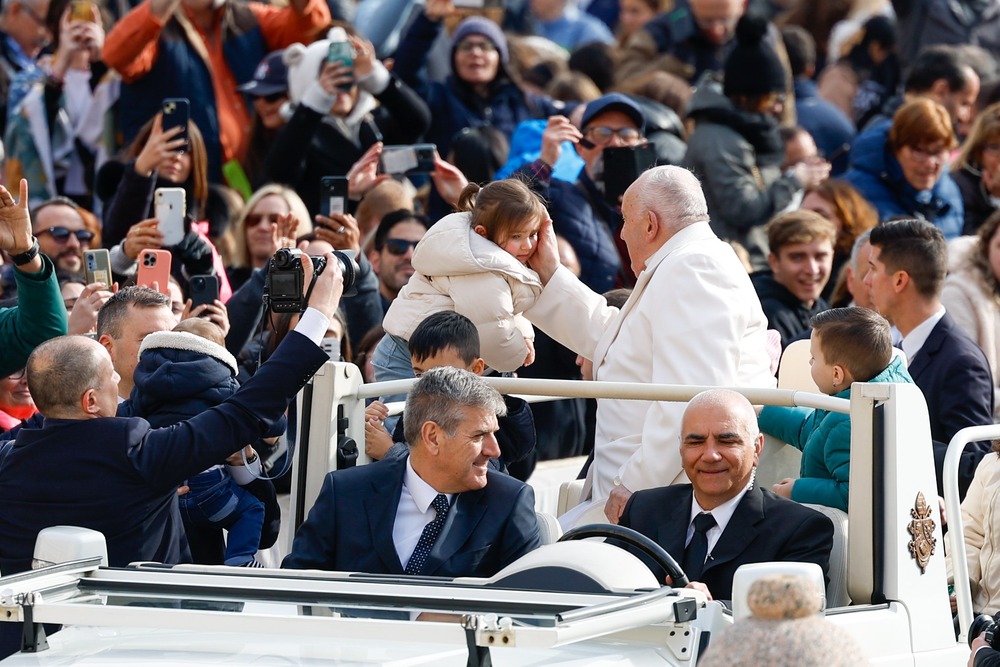
Pope Francis greets a child while riding in the popemobile before his general audience in St. Peter's Square at the Vatican March 13, 2024. (CNS/Lola Gomez)
The saints are not unreachable "exceptions of humanity" but ordinary people who worked diligently to grow in virtue, Pope Francis said.
It is wrong to think of the saints as "a kind of small circle of champions who live beyond the limits of our species," the pope wrote in the catechesis for his general audience March 13 in St. Peter's Square. Instead, they are "those who fully become themselves, who realize the vocation of every person."
"How happy would be a world in which justice, respect, mutual respect, the breadth of the spirit (and) hope were the shared norm and not a rare anomaly," he wrote.
Just like at his general audience March 6, Francis told visitors in the square that due to a mild cold an aide, Msgr. Pierluigi Giroli, would read his speech. However the pope had seemed recovered when he read the entirety of his homily -- adding plenty of off-the-cuff remarks and soliciting engagement from the crowd-- during a Lenten penance service in a Rome parish March 8.
Continuing his series of catechesis on virtues and vices, the pope wrote that a virtuous person is not one who allows him or herself to become distorted but "is faithful to his or her own vocation and fully realizes his or herself."
Advertisement
Reflecting on the nature of virtue, which has been discussed and analyzed since ancient times, the pope said that virtue is not an "improvised" and "casual" good exercised from time to time. Even criminals, he noted, have performed good acts in certain moments. Virtue is rather a "good that is born from a person's slow maturation until it becomes his or her inner characteristic," he wrote.
"Virtue is a 'habitus' (expression) of freedom," the pope wrote. "If we are free in every act, and each time we are called to choose between good and evil, virtue is that which allows us to have a habit toward the right choice."
He encouraged people not to forget the lesson taught by ancient thinkers, "that virtue grows and can be cultivated," and wrote that for Christians developing virtue depends primarily on the grace of God.
By developing open-mindedness, good will and the wisdom to learn from mistakes, he wrote, people can be guided toward a virtuous life in the face of the "chaotic forces" of passion, emotion and instinct to which humanity is susceptible.
Taking the microphone to greet pilgrims at the end of his audience, Francis shared that he had been given a rosary and a Bible that belonged to a young soldier killed in combat, though he did not specify in which conflict.
"So many young people, so many young people go to die," he said. "Let us pray to the Lord so that he may give us the grace to overcome this madness of war which is always a defeat."







